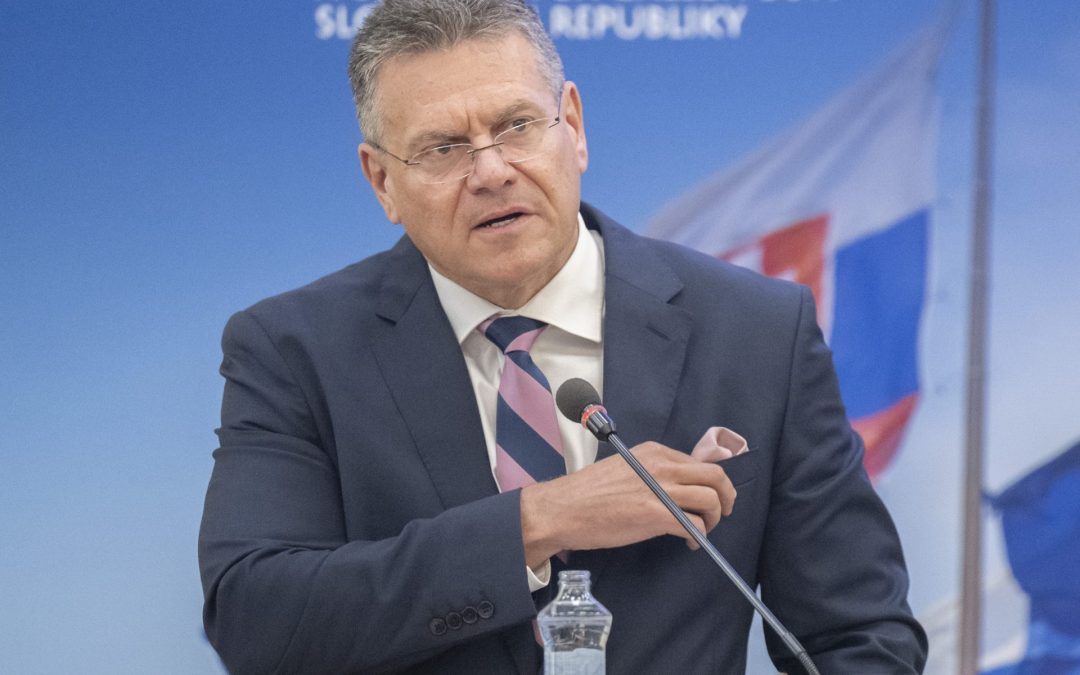“`html
Brussels/Bratislava – The planned reform of the EU customs system will facilitate the work of customs officers, save money, and protect consumer interests. This was stated on Tuesday in Brussels by Slovak Finance Minister Ladislav Kamenický (Smer-SD) and EU Commissioner for Trade and Economic Security Maroš Šefčovič after a meeting of EU finance ministers (Ecofin), reported by TASR correspondent.
Kamenický noted that many topics were discussed at Ecofin, with ministers talking with a representative of the International Monetary Fund (IMF) about the issue of high energy prices in the EU, which competitively disadvantages it against other global players, as well as the expensive mobility of the workforce in Europe.
He appreciated that the British Finance Minister visited Ecofin, which indicates a possible restart of economic relations between Brussels and London following the cooling that occurred after Brexit.
According to him, one of the important topics of the discussions was the proposal to establish some sort of central customs system for the entire EU. “We, as Slovakia, welcome this. It is important for us that goods which have not passed certifications, such as toys that could endanger children’s health, are not imported. Many goods are also imported without being cleared, without VAT, which means an additional income for the budget. We will strive to make this fair for entrepreneurs in the EU,” Kamenický explained.
Six EU commissioners, including Šefčovič, participated in the Ecofin meeting. Šefčovič, on behalf of the European Commission, where he is also responsible for trade policy, appreciated that the upcoming Polish presidency of the EU Council wants to accelerate the in-depth reform of customs at its initiative and launch negotiations with the European Parliament by the end of June 2025.
“The greatest need arises from the rapid expansion of electronic commerce. This year alone, we expect more than four billion packages, mainly from China, to arrive in the EU, which are difficult to control. There are major complaints about content, about quality. It is evident that this flood of packages cannot be addressed with the traditional tools that customs officers have at their disposal,” said Šefčovič.
Therefore, according to him, the proposal was made to create a European Customs Office and a European Data Center, where it will be possible to use modern methods of information sharing and better risk assessment. This will facilitate the work of customs officers so that they will not have to check everything but perform checks based only on risk assessments.
Šefčovič emphasized that if negotiations on this agenda among EU institutions start next year, the new union customs authorities should begin operating in 2026. According to him, the resulting effect will not only relieve the workload of customs officers but also result in savings of about two billion euros annually for the EU. This is also because over 110 IT systems currently used by customs administrations across the EU would be replaced by one unified IT system, allowing for better protection of the Union’s customs interests. (December 10)
“This year alone, we expect more than four billion packages, mainly from China, to arrive in the EU, which are difficult to control. There are major complaints about content, about quality. It is evident that this flood of packages cannot be addressed with the traditional tools that customs officers have at their disposal.” Maroš Šefčovič
“`
 go to the original language article
go to the original language article
